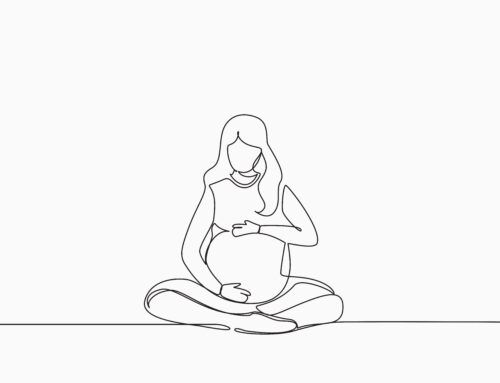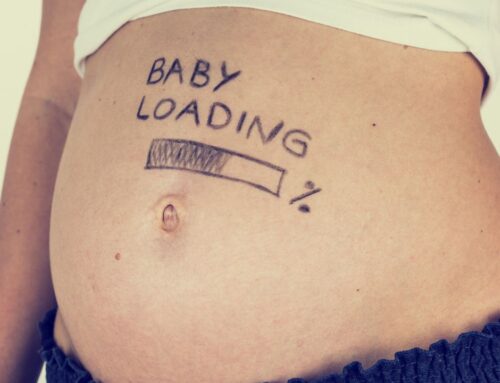One of the most difficult aspects of pregnancy is finding a comfortable way to sleep while your body continues to grow and change. Between more frequent nightly bathroom visits to a growing baby bump, it may be difficult to find a good position for sleeping during pregnancy. Here are some tips that might help you find that “sweet spot.”
Why am I so uncomfortable?
You may find that your typical sleep position may no longer work for you as your pregnancy progresses, especially if you were a stomach or back sleeper. Some of the reasons you may not be sleeping as well are:
- Increased size of abdomen
- Shortness of breath
- Back pain
- Frequent need to urinate
- Heartburn
- Anxiety
Don’t Sleep On Your Back
When pregnant, sleeping on your back is a big no no after the first trimester because the added pressure can cause complications from decrease in circulation to pinched nerves, hemorrhoids, low blood pressure and back aches to name a few. As your abdomen grows, lying on your back can also cause a shortness of breath due to the added pressure.
Sleeping on Your Left Side
The most recommended sleep position for pregnant women is the left side because it greatly improves blood flow which enables the most amounts of nutrients to reach the baby through the placenta. Additionally, it may help reduce the amount of swelling in your ankles and feet as laying on your left side assists kidneys in working more efficiently throughout the night.
Switch Positions Throughout the Night
If you stay in one position all night, you may find your body is very stiff in the morning. It can help to switch from one side to the other throughout the night. A trick is to start sleeping on your left side and then switch which side you lay down on every time you come back from the bathroom. Due to frequent bathroom trips thanks to pregnancy hormones and pressure on your bladder, you are sure to switch from side to side at least a few times a night.
Pillows
You can never have enough pillows. Try bending your knees and putting a pillow between your legs to relieve the pull on your hips. To further relieve back pain, add a flat pillow under your abdomen as well. There are many pregnancy pillows on the market. You can certainly use one of them if you find it makes your comfortable but many women find that just the right combination of regular bed pillows can do the trick too.
Heartburn
You may been to experience heartburn due to the hormonal changes that relax the muscle between your esophagus and stomach which allows stomach acid to burble up causing heartburn or acid reflux. To battle heartburn at night, speak with your doctor about over the counter remedies. Also, at night, prop up your head with pillows to keep the stomach acid down. Another trick is to put pillows or folded blankets under the top of your mattress to elevate your head. If heartburn is making sleep impossible,
Leg Cramps
Starting in your second trimester, you may find that your legs begin to cramp at night while you are trying to sleep. No one really knows why women seem to get more leg cramps during pregnancy however it is most likely due to carrying around added weight as well as the pressure that is being put on the blood vessels and nerves that run down to your lower extremities. Whatever the cause, waking up with leg cramps is never fun.
If you do get a leg cramp at night, immediately stretch your calf muscle by straightening your leg and flexing your toes back toward your shin. It may hurt at first but as the leg cramp eases, the pain will disappear. You can also apply a heating pad to the cramp or massage the muscle that is having a spasm.
Things you can do during the day to decrease the likelihood of leg cramps at night include:
- Stretch your calf muscles during the day as well as several times before bed
- Sleep on your left side at night to increase blood flow
- Avoid sitting or standing with crossed legs for long periods of time during the day
- Take a warm bath before bed to relax your muscles
- Wear comfortable shoes with good support
- Drink plenty of water to stay hydrated
- Take a walk or two every day
If you experience constant pain in your leg or if you notice swelling or tenderness, call your doctor right away as this may be a sign of a blood clot. Blood clots are rare but pregnant women are at higher risk of having them and blood clots require immediate medical attention.
Take a Nap
As your pregnancy progresses, you will find yourself getting more and more tired. If you can, try to take a nap each day, even if it means lying down on the couch for 30 minutes when you come home from work. When you do nap, lay on your left side to increase blood flow and use a pillow between your knees or under your abdomen for added comfort.
Additional Tips for Successful Sleeping
- Get into a routine of going to bed and waking up at the same time each day
- Avoid exercising just before bed and instead opt for a calming bath, herbal tea or warm milk
- Avoid eating a full meal within a few hours of going to bed
- Take a yoga class or meditate in the evening to slow your body and your mind before bed




